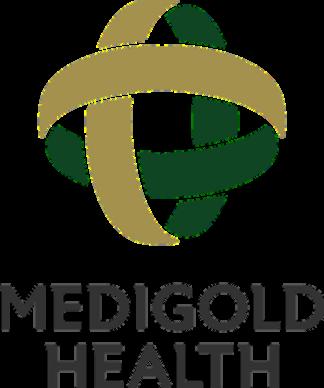

A quick glance back at the last quarter
Why women’s health is everyone’s business
Sleep tight Celebrating neurodiversity!
It’s competition time with our Easter egg hunt!
Head Designer
Foreword
Copy & Proof
Copy & Curation
Graphic Designer




A quick glance back at the last quarter
Sleep tight Celebrating neurodiversity!
It’s competition time with our Easter egg hunt!
Head Designer
Foreword
Copy & Proof
Copy & Curation
Graphic Designer

Welcome to our first newsletter of 2024!
I can’t quite believe that, as I write this, we are already a quarter of the way through the year. Yet there is no denying that spring is in the air (and hopefully, with it, some brighter weather!).
This time last year, Medigold had just embarked on our own season of growth and new beginnings, having recently welcomed a whole new team of people into the family after completing our successful acquisition of Health Management. Now, as the changes we’ve been making really begin to bed in, we are looking forward to seeing all our efforts and the work we’ve put in over the last 12 months start to bear fruit, both for us and our customers.
We are also very excited for the Easter break, and on that note…
…It appears that a certain bunny has been busy hiding his eggs all over the pages of this issue! There’s a £50 Amazon voucher up for grabs if you can find them all – simply follow the link on page 6 to tell us how many you think there are and enter our prize draw.
Nicole Corr
Alex Goldsmith
Gemma Steel
Katie Hall
Jodie Palmer
Annabel Scriven

While you’re hunting, be sure to stop and have a read of some of the egg-cellent articles we’ve wrapped up in this issue. Over on page 10, we delve into some of the ways that organisations can better support women’s wellbeing, while on page 16 you can find out about the wealth of services we offer to help you embrace neurodiversity in your workplace. And if, like me, you’d like to learn how you can get a better night’s kip, hotfoot it across to Coffee Break Corner (page 24), where we share our tips on how to boost your sleep (none of which involve counting sheep, or spring lambs!).
Happy Easter!

16 Diversity is the spice of life!
This time in our Spotlight feature, find out how we can help your organisation to embrace neurodiversity and create a truly inclusive workplace where every mind can shine.
With the world celebrating International Women’s Day in March, we look at why organisations need to be prioritising women ’ s wellbeing and the steps they can take to better support the health of their female talent.

20 Giving back to our communities
Meet the beneficiaries of our first round of Community Impact Grants and find out how we ’ re making a positive difference to the causes close to our people’s hearts.

24 Sweet dreams!
Grab a (decaf) brew, put your feet up and head over to Coffee Break Corner to get our top tips for how to boost your sleep tonight!
Here’s a little snapshot of what’s been happening across the business over the last few months (well, mainly March!)
In January, we announced the winning beneficiaries of our first round of Corporate Giving grants awarded under our new Community Impact Programme. Find out more about how they’re helping to fund vital charity projects in our local (and not so local!) communities over on page 20.
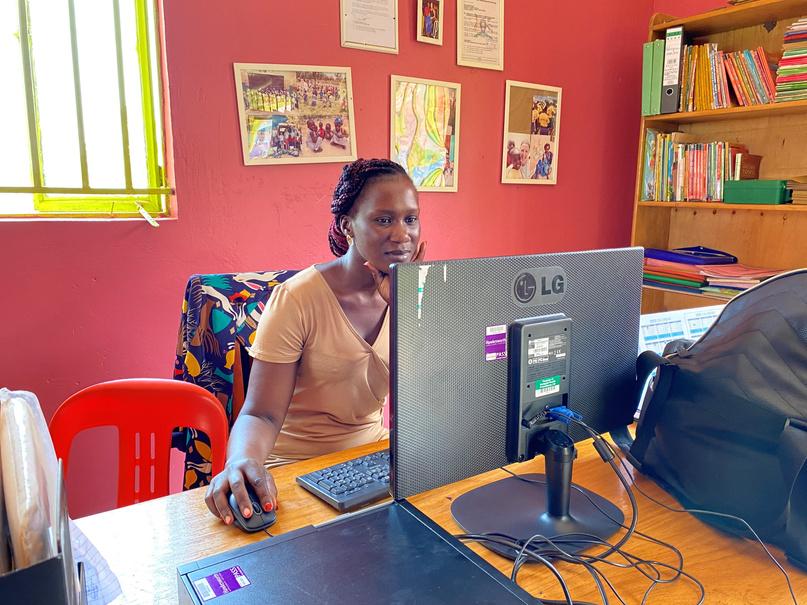
On 12th and 13th March, the Medigold team once again headed to the NEC Birmingham to exhibit as Gold Sponsors at the annual Health & Wellbeing @ Work event, and we can definitely say that 2024 was the best show yet!
As we brought MiniMedigolf to the masses, we were proud to be nicknamed ‘the fun stand’ and prouder still to be able to spread the word about the importance of looking after employee health and taking a holistic approach to workplace wellbeing.
Across the two days, we connected with over 400 people and received a fantastic reception from the 500+ attendees at our packed-out talks on men’s health and neurodiversity.
We’d call that a hole in one!
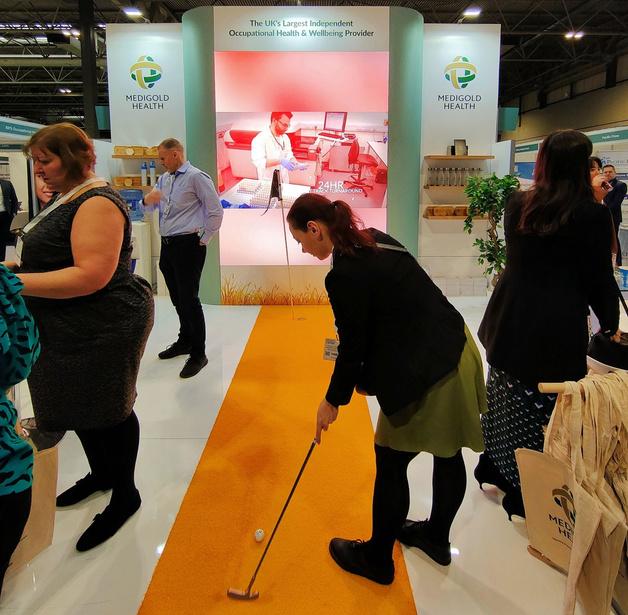

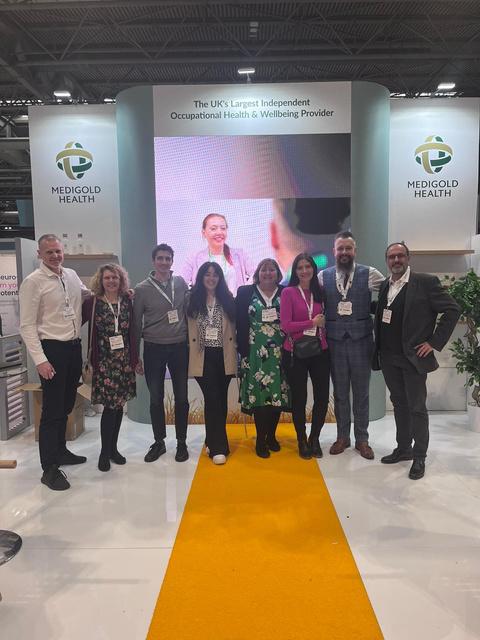
On 7th March, we celebrated the first anniversary of our acquisition of Health Management Limited. A lot has changed in a year, and while the project of integrating HML into our business hasn’t all been plain sailing, it has really enabled us to grow as an organisation - in every sense - and we’re incredibly proud of what we and our brilliant, passionate people have already been able to achieve together thus far.
We can’t wait to see where this next year will take us!

We were thrilled to see Kim Najran, one of our brilliant Disability & Consultancy Specialists, being recognised by MHFA England in their Instructor Member Spotlight feature in their latest newsletter. Click here to have a read as she talks to them about how delivering MHFA training fits into her role at Medigold and why she’s so passionate about promoting inclusivity and acceptance of diverse identities through her work.
We depend on (neuro)diversity!
To mark Neurodiversity Celebration Week (18th - 24th March), we hosted a special webinar looking at why organisations should be embracing neurodiversity and ran an article in our LinkedIn Newsletter (penned by our National Disability and Training Consultancy Specialist, Alice Gibbons) on Harnessing Neurodiverse Talent in the Workplace, which you can read here.
Flip to page 16 to learn more about our Neurodiversity Support Services!


We have a full calendar of webinars lined up for 2024.
To take a look and book your spot, click the button below!

Back on 8th March, Medigold joined many other organisations across the globe in celebrating International Women’s Day.
As well as being a chance to commemorate the social, economic, cultural and political achievements of women, the day is also a crucial opportunity to raise awareness about women's rights and highlight the ongoing issues and challenges that women face, including in the workplace.
One area where many employers could be doing more is in providing better support when it comes to female health issues.
48%
77%
Women make up a significant proportion of the workforce - in 2023, 48% of people employed in the UK were women.
68%
Women workers dominate numerous sectors, holding the majority of positions in many crucial occupations including health and social care (77%), education (70%) and retail and wholesale (58%).
36%
Sixty-eight per cent of women have experienced a period of poor physical or mental health while at work.
When it comes to women-specific health issues, a staggering 36% of women said they felt their employer had not been supportive.
Many women and people assigned female at birth experience hormonal and reproductive health challenges that can have a significant impact on their personal life, work life and relationships. The ramifications of these health challenges can also adversely affect employee wellbeing and organisational productivity if individuals are not supported effectively.
Monthly menstruation symptoms can cause havoc in women's day-to-day lives, with over 79% suffering from symptoms such as abdominal cramps, low mood, irritability, fatigue and bloating. Yet there is still considerable stigma around talking about menstruation in the workplace. Indeed, 49% of employees say that they would not tell their manager their absence is related to their menstrual cycle.
Menopause in the workplace has become a particularly hot topic in recent years. Menopause symptoms (which can include hot flashes, mood swings, fatigue, memory and concentration issues and sleep disturbances) affect 85% of women and can have negative implications for their professional lives.
Research has found that 73% of women feel unsupported at work while going through menopause. Meanwhile, 1 in 10 leave work because of menopause symptoms, representing a considerable drain in knowledge and expertise from the workplace.
Endometriosis is the second most common gynaecological condition in the UK. The symptoms associated with endometriosis (which can include severe pelvic and period pain, digestive issues, abnormal periods and fatigue) can often result in time off work and reduced productivity. Fifty-five per cent of people with endometriosis have had to have time off work because of it, while 40% worry about losing their job and 27% say they’ve missed out on a promotion due to the impact of their condition.
Fertility challenges can be detrimental to a woman's health and wellbeing and costly to their career. Eighty-six percent of women said that their productivity at work was strongly impacted by fertility challenges, and 16% quit their jobs because of the impact fertility treatment had on them.
Caregiving disproportionately affects women, exacerbating workplace inequality. An alarming 60% of women cite caregiving responsibilities for children and vulnerable relatives as barriers to pursuing new job opportunities or promotions. Recognising, addressing and supporting individuals with these additional responsibilities is crucial for fostering gender equality in the workplace.
Disregarding women's health issues not only impacts the individuals experiencing these challenges but can also convey a detrimental message about your organisation's commitment to the wellbeing of its workforce in general.
Supporting women's wellbeing in the workplace and addressing the additional unique pressures they may be under is, therefore, not only a moral imperative but also a strategic investment that can positively impact all employees and the overall success and sustainability of your organisation.
What are the business benefits of recognising and supporting women’s wellbeing?
Improved retention rates and reduced recruitment costs as a result of increased employee job satisfaction.
Enhanced productivity and stability due to reduced levels of absenteeism and presenteeism and decreased spending on employee absence.
A more positive reputation and competitive edge in the labour market - demonstrating your commitment to employee wellbeing can help you stand out as an employer of choice and make your company more attractive to top-tier talent.
How can you better support women in your workplace?
Implementing some of the strategic initiatives we explore below can make a significant difference in removing barriers and addressing the challenges that women face.
Manager education and awareness training
Begin by educating managers about the specific health and wellbeing challenges women encounter. Consider conducting workshops and training sessions to raise awareness of issues such as menopause,
hormonal health, fertility, maternity health, mental health and work-life balance. This will empower your managers to be more attuned to the needs of female employees and enable them to offer better support.
Create an open, supportive environment
Promoting an open and inclusive workplace culture is vital. Establish channels for transparent communication where employees feel comfortable discussing their concerns. By encouraging open dialogue, you will create a comfortable and supportive atmosphere where everyone, regardless of gender, can voice their needs without fear of judgment.
Mentorship programmes and networking opportunities
If you want to boost the confidence and contribute to the professional growth of female employees within your organisation, providing opportunities for them to connect, share experiences and build a supportive professional community is a great first step.
Additionally, offering access to mentors who can provide guidance and support when dealing with female-specific challenges can be highly beneficial for your workplace culture.
Implementing flexible working arrangements shows that you recognise the diverse responsibilities women often juggle. Remote working options, flexible hours or compressed work weeks can promote a healthier work-life balance and help accommodate the various demands on women's time, whether related to family, health or other personal commitments.
The benefits of incorporating these strategies into the workplace extend beyond just supporting women's wellbeing. By fostering an environment that values inclusivity and flexibility, organisations can empower all employees to thrive, both personally and professionally, and, in turn, build a more resilient, engaged and productive workforce overall.

Enhance your organisation's knowledge around menopause and genderspecific health issues. Our engaging training programmes will equip your teams with the awareness, tools and confidence necessary to promote a more positive wellbeing culture and better support those experiencing menopause and other health issues within your business.
Provide your team with access to high quality, cost-effective support services. Our Employee Assistance Programmes include 24/7 access to accredited counsellors, an online health and wellbeing portal and advice and guidance from qualified nurses and other specialist professionals, all of which together can help to better support women's holistic wellbeing.
Our management referral assessment service can provide you with guidance and recommendations on practical adjustments you can introduce to help you better understand and more effectively support your employees’ specific health needs.
This issue, the spotlight’s on our Neurodiversity Support Services.
In our regular spotlight feature, we like to take a moment to introduce you to some of the specialist health and wellbeing services that Medigold provide that you may not be so familiar with. And, with Neurodiversity Celebration Week (18th-24th March) having just taken place, it seemed only fitting that this time we shine a light on our suite of Neurodiversity Support Services.


Neurodiversity is the term used to describe differences in the way that people’s brains function, learn and interpret information. According to the CIPD, it is estimated that at least 10% of the UK’s population is neurodivergent. However, most UK organisations are still physically and structurally set up for people who are ‘neurotypical’.
Because of this, employees with neurodiverse conditions, such as ADHD, autism and dyslexia, can often find it difficult to navigate traditional workplace dynamics. Yet failing to accommodate neurodivergent employees doesn’t only impact on their individual wellbeing. It can also be costly for employers, contributing to increased levels of absenteeism and presenteeism, reduced engagement and productivity and higher turnover rates, not to mention leaving a huge pool of talent untapped.
Our neurodiversity support services have been developed to help your organisation reap the many benefits that neurodivergent employees can bring to the workplace. Designed to equip your teams with the understanding and practical tools necessary to be able to remove barriers and better support neurodiverse colleagues, they will empower your organisation to create a truly inclusive environment where every individual can flourish.
Undertaken by our qualified assessors, our holistic neurodiversity assessments help to identify any disability-related barriers that an employee is experiencing and gain an understanding of their needs, in order to provide advice on tailored support and practical adjustments that will assist them at work. For further information on the different types of neurodiversity assessment available and the benefits they offer, check out our FAQ guide.
Our non-clinical case management service builds on from the expert neurodiversity assessment, supporting the employee and their manager end-toend by helping to ensure that any recommended adjustments are implemented effectively and consistently.
Ensure that your neurodivergent employees are able to access the resources they need to optimise their talent and reach their potential. We provide specialist advice to enable you to make clear, consistent procurement decisions and reduce costs and can also connect your teams with organisations who can offer additional support.
We provide both individual coaching sessions and co-coaching (for the employee and their manager). Our coaching services are designed to enhance working relationships, help employees develop practical strategies to address the particular workplace challenges they experience and equip all parties with the tools to foster a supportive, productive work environment.
To mark Neurodiversity Celebration Week this year, our Training and Consultancy Team hosted a special webinarEmbracing Neurodiversity: Strategies for attracting and supporting diverse talent. In case you missed it, you can catch up now on our YouTube channel! Simply follow the link below where you can also view all our webinars from 2024 so far!
Our engaging training programmes will help your teams to develop their awareness and understanding of neurodiversity and equip them with the confidence and practical strategies to be able to effectively support colleagues and create a more neuroinclusive workplace. Led by our experienced trainers, sessions can be delivered faceto-face or online, and we can also provide targeted workshops for both line managers and colleagues.
Designed to support both neurodivergent employees, colleagues and line managers, our popular toolkit is a comprehensive resource library, providing:
An introduction to neurodiversity
Self-help guide
Line manager guide
Tools and techniques
Factsheets
Our bitesize sessions and webinars can be accessed as a standalone service or used to complement learning from our training programmes and can be delivered live or recorded to be made available on your company intranet. Designed for all employees, these sessions focus on some of the most common neurodiverse conditions, including ADHD, autism and dyslexia, and how to support them effectively in the workplace.
If you’d like to find out more about our neurodiversity support services, you can check out our brochure here.
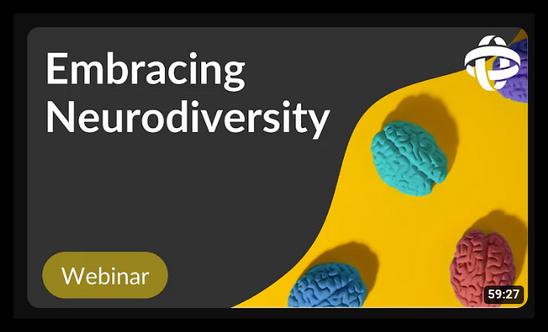
Medigold Health have always been passionate about actively participating in and making a positive impact on the communities in which we work.
Last October, we cemented this commitment by launching a new Community Impact Programme.
Our CIP provides a clear framework that allows us to take a more structured approach to our philanthropic activities, ensuring that these reflect fair and ethical processes and align with our core values and wider ESG strategy and goals.

One of the key employee-focused schemes we run as part of the programme is our Corporate Giving Scheme. This initiative gives our employees the opportunity to apply for a grant to go towards a charity or good cause that they are linked to, volunteer with or fundraise for in their own time.
In January, we were delighted to announce the beneficiaries of the grants awarded during our first Corporate Giving Window, and we wanted to share these with you, so you can learn more about the great work our people, and our company, are doing to make a difference.
Nominated by Duncan Noble-Nesbitt, one of Medigold’s Nurse Managers, who lives with the condition and is a trustee of the charity, which his parents helped set up.
Phenylketonuria (PKU) is an inborn metabolic disorder. People with PKU either do not produce the enzyme Phenylalanine Hydroxylase (PAH) or produce it in insufficient amounts to metabolise phenylalanine, one of the essential amino acids found in protein foods. If not treated, this lifelong condition can lead to severe and irreversible brain damage, particularly during the early development years.
Medigold’s grant to the NSPKU (which is the world’s oldest charity for PKU and is this year celebrating its 50th anniversary) will go towards raising awareness of PKU and events to support those living with the condition.
Nominated by Dr Tesfay Gulai, one of Medigold’s Occupational Health Physicians based in our Glasgow clinic.
Following an upgrade of the computer system at Medigold’s Glasgow clinic earlier last year, Tesfay suggested to our IT Team that 11 PCs no longer required by the business could be donated to schools or libraries in underprivileged communities.
Tesfay learnt that Rock Projects Uganda, a Scottish charity that supports communities in the town of Kitetikka and the village of Busiika in Uganda, would be able to use the PCs for various projects, including transferring paper patient records in medical clinics and equipping a computer lab for high school students, as well as for school and church administrative work.
However, due to the prohibitive shipping costs, the charity was unable to get the PCs sent to Kitetikka and Busiika, and they remained stuck in the UK. Medigold Health’s Community Impact Grant will fund the transport of the PCs and get them to where they are needed. To find out more about the important work of Rock Projects Uganda, which includes providing facilities, food, shelter, accommodation and education for underprivileged children, follow the link here: rockprojectsuganda.org.

Nominated by Jody Briggs, a Medigold Team Manager based in Plymouth, who volunteers as a poppy seller every year for RBL in the town where she used to live.
The Royal British Legion is there to help serving members and veterans of the Royal Navy, British Army, Royal Air Force and their families, providing life-long support from after one day of service until long after their service is over.
Operating year-round, 24/7, they provide everything from care, independent living support and financial support through to mental and physical wellbeing initiatives and community support, as well as help with finding employment after ‘de-mobbing’. The branch in West Cornwall that Jody volunteers with, and which will benefit from the Medigold Health grant, also operates a soup kitchen and provides shopping assistance for veterans during illness.
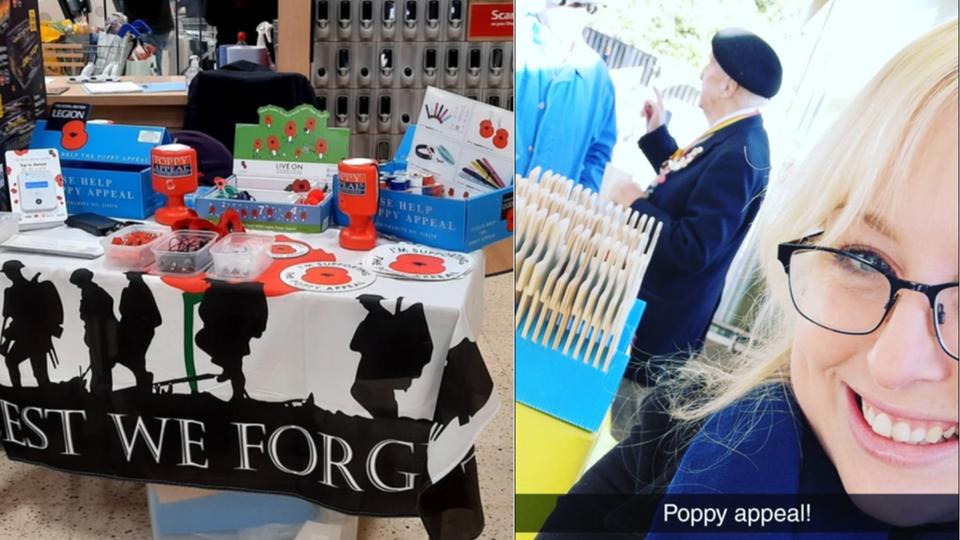
We're so pleased to have been able to positively impact each of these charities - and the people they help - with our grants, and we'd like to say a big thank you to Duncan, Jody and Tesfay for nominating them and for all the work they do supporting them.
We look forward to sharing more about the beneficiaries of our second round of Community Impact Grants in our future issues!
After a hard day, we get how tempting it can be to put off going to bed in favour of staying on the sofa watching just one more episode of that binge-worthy boxset.
But when not prioritising our shuteye becomes a regular habit, the consequences for our physical and mental wellbeing can be significant.
Did you know, for example, that not getting enough sleep (or good enough quality sleep) can cause mental impairment that can affect your concentration, alertness and judgement and in turn impact your work performance and put you at higher risk of accidents?
Or that, over time, chronic sleep insufficiency increases your risk of serious health issues, including cardiovascular disease, type 2 diabetes, obesity, hormonal imbalances, immunodeficiency and mental health disorders?
The benefits of ensuring you’re getting enough ZZZs in are clear, so if you want to boost your slumber, check out our top tips below for how you can improve your sleep habits today:
Going to bed and, importantly, waking up at the same time each day can help to keep your sleep cycle aligned with your internal body clock and ensure you are getting more restful and restorative sleep.
Avoid bringing your phone, tablet or laptop into your bedroom and try to switch off from all screens at least 60 minutes before bed. These devices generate blue light that can reduce production of the sleep hormone, melatonin, and can also cause mental stimulation that may make it harder for you to fall asleep. If you still feel like you need to wind down, try reading a book or listening to a podcast or guided meditation instead.

Remember, not all of these tips will work for everyone. If you’re regularly experiencing problems with sleep, or struggling with daytime sleepiness, we recommend talking to your doctor for further advice and support.
Your daytime activities can have a real influence on how you sleep at night. Ensuring that you spend some time outside in daylight and get enough physical activity each day, reducing your caffeine and alcohol intake, and avoiding eating too close to bedtime can all help you to sleep more soundly.
Creating a calm and comfortable sleep environment can do wonders for improving your sleep. Most people sleep best in a dark, cool, quiet space, so as well as investing in a good mattress and pillows, consider installing thicker curtains or blinds, banish lightemitting devices, make sure the temperature is right for you and ensure your bedroom is well ventilated. Using earplugs or listening to white noise or ambient music to block out external sound could also help you to drift off more easily.
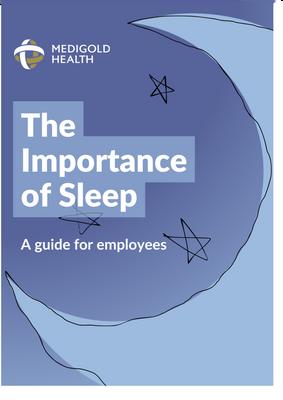
For more information on the importance of sleep for health, download our free guide.
Take a look
We hope you enjoyed this issue of The Medigold Memo and that you’ll look forward to the next one! In the meantime, you can stay in the loop with what’s happening across the Medigold Health Group via our social channels.




Interested in learning more about what we can do for your business? Get in touch!
Give us a call Send us an email
Visit us on the web